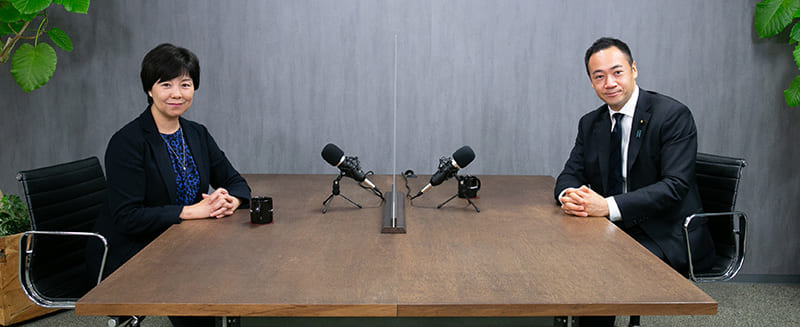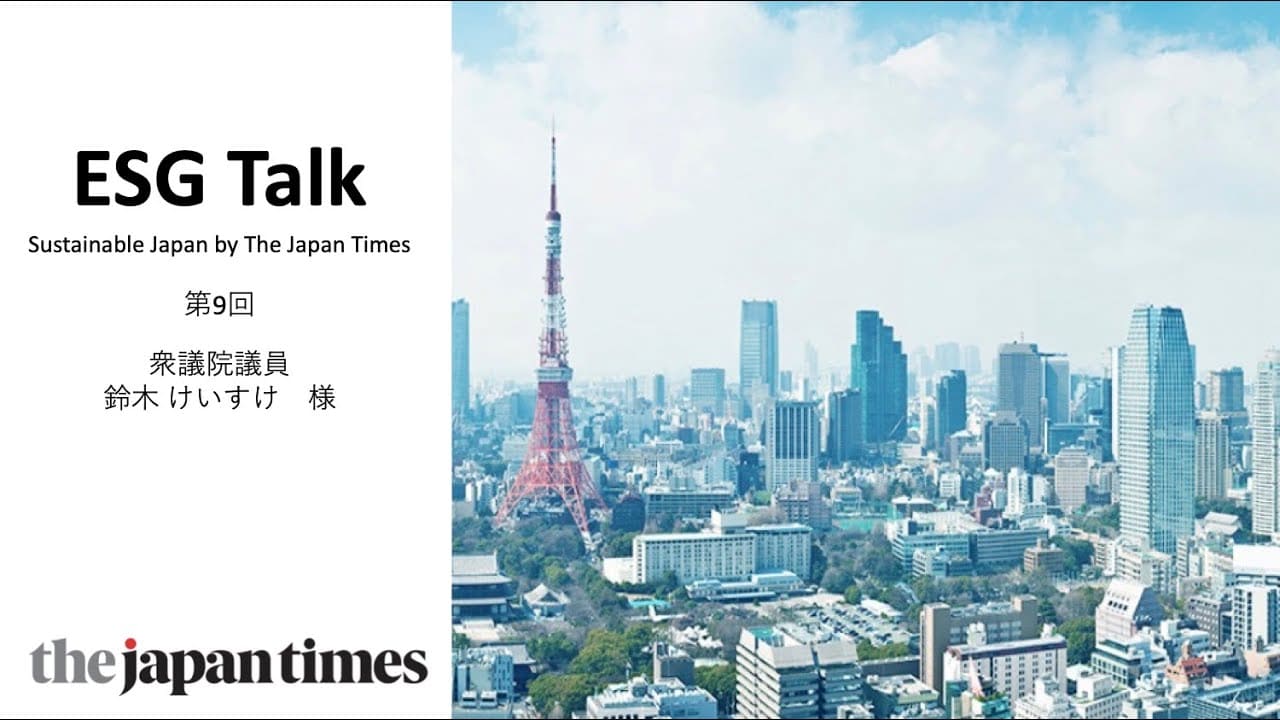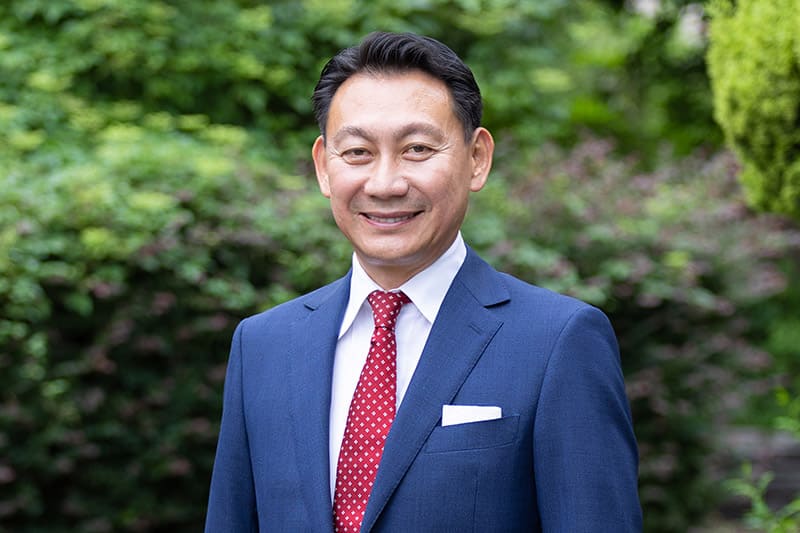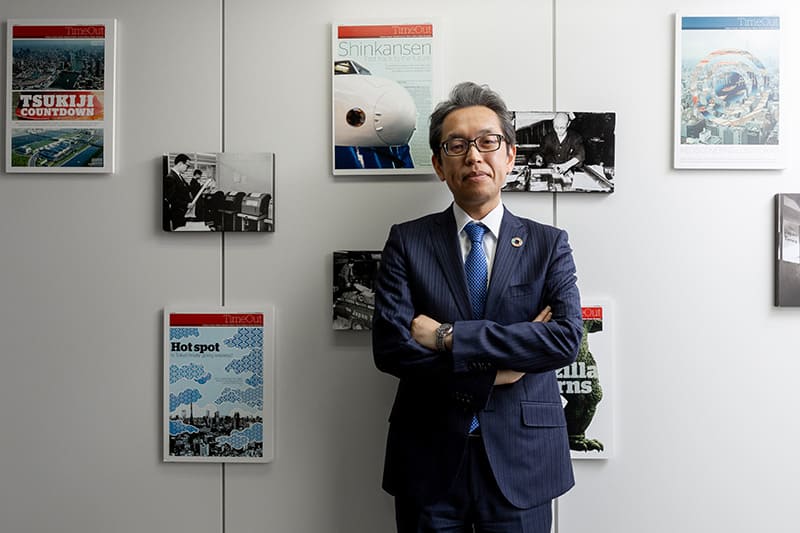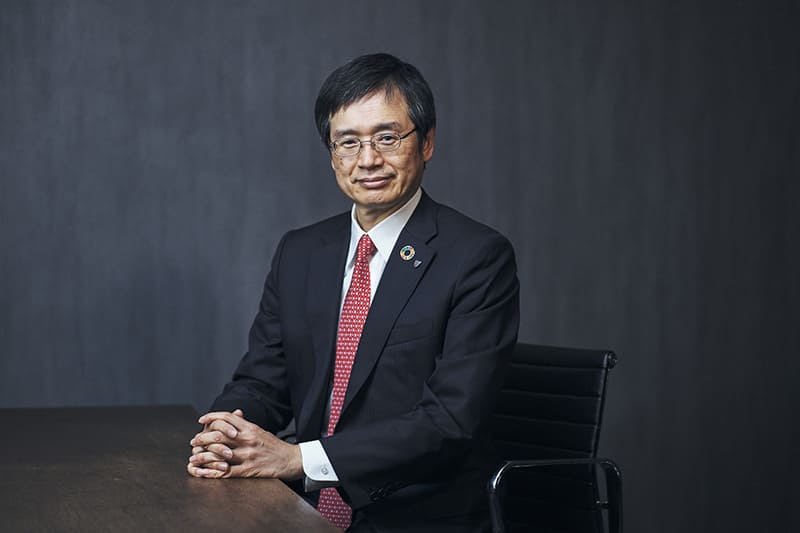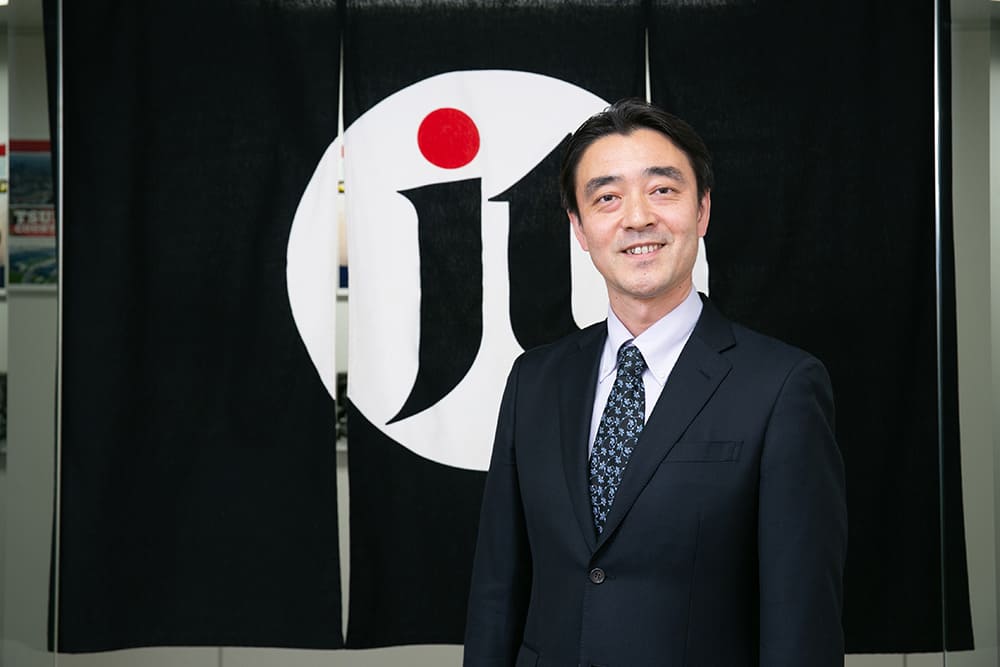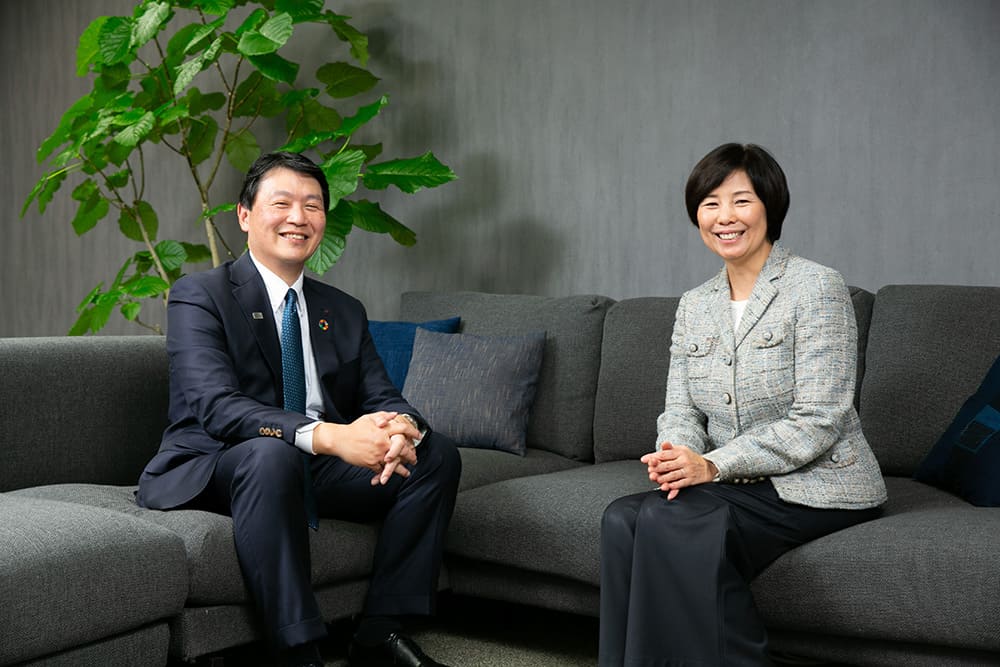September 24, 2021
LDP seeks Japanese voice in formulating ESG rules
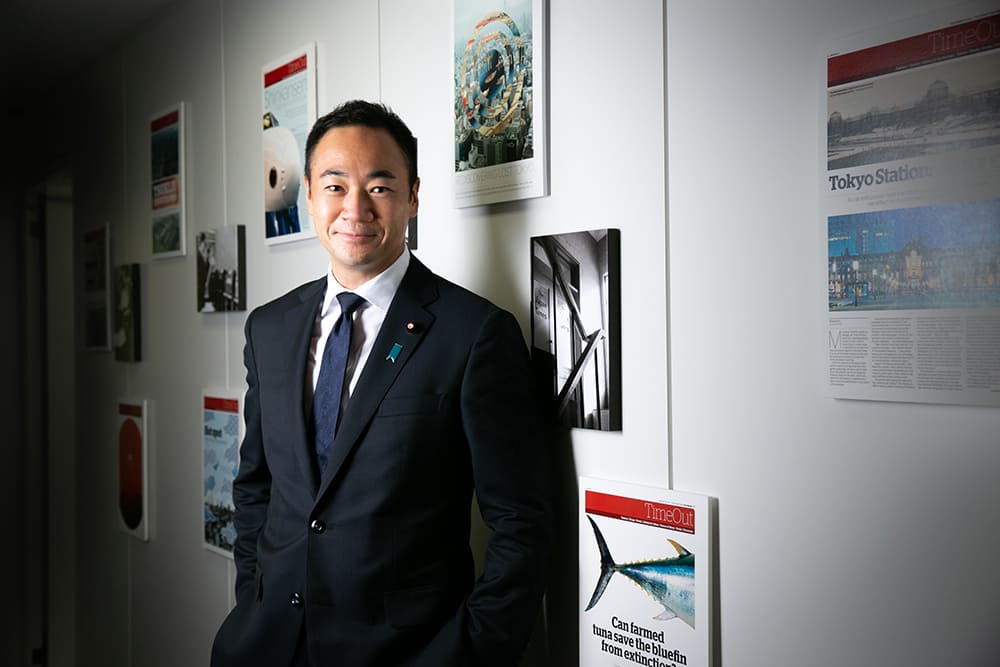
The Treasury and Finance Division of Japan’s ruling Liberal Democratic Party has made recommendations to promote investment and loans that support a sustainable society and economic growth, or what is known as sustainable finance. The move is aimed at leading domestic discussions in a systematic manner and helping make Japan and Asia’s perspectives be reflected on the international stage, as efforts to design regulatory infrastructure and rules on businesses’ disclosure of environmental, social and governance (ESG) information are being led by the European Union.
Keisuke Suzuki, a Lower House member of the LDP who led the initiative to create the party’s recommendations, said this is “a very important year for the creation of international rules.” He added, “And it’s the last chance for Japan to get involved in the process to formulate these rules.”
The initial motivating force for the LDP’s recommendations was an acceleration in discussions on information disclosure, led by the Task Force on Climate-related Financial Disclosures, in response to investor shortsightedness known as “quarterly capitalism” that emerged after the global financial crisis in 2008, and also to a heightened sense of crisis about the risk of the devastating impact that climate change might have on businesses. At that time, the “need to, in a sense, redefine capitalism” on the basis of long-term revenue began to be asserted, according to Suzuki.
Quantifying future risks
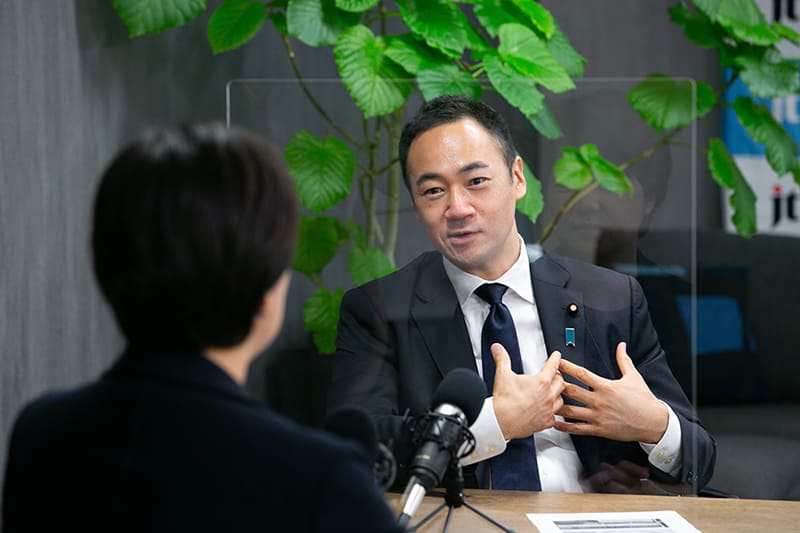
In recent years, the international financial industry has shared a growing perception that nonfinancial information — including how businesses address ESG issues, including climate change — is very important in judging long-term revenue, value and business sustainability. While the concept of corporate social responsibility, which attracted attention in the early 2000s, is often discussed in the context of contributing to society, Suzuki said that sustainable finance and ESG investment, in which businesses’ long-term profits or future earnings are quantified and evaluated, are “similar but different.”
Taking account of these, the LDP recommendations reconfirmed that the disclosure of information — mainly nonfinancial, including businesses’ sustainability over the long term and their sensitivity to various risks — is essential. The recommendations included a call for Japan to become actively involved in the process of formulating international disclosure rules, and proposed to include a call for businesses to disclose such information in Japan’s corporate governance code and begin discussions on ways to eventually make such disclosure mandatory for businesses. In response to the recommendations, the revised corporate governance code, which took effect this past June, introduced new provisions on climate change risks and corporate governance. In addition, the recommendations sorted out the roles that should be played by financial institutions, the financial watchdog and the central bank, pointing out that it is important in Japan, where indirect financing plays a relatively large role, for financial institutions to conduct stress tests in a steadfast manner and for the central bank to monitor them.
Criteria that respect variation
Suzuki spoke of “taxonomy,” an area where the EU leads, in explaining why Japan should be involved in formulating international rules. Taxonomy is, for example, a system of organizing economic activities based on whether they are environmentally friendly. It can provide important criteria for evaluating investment decisions but risks creating inequality if it fails to take into account circumstances that differ from country to country.
As an island nation, Japan has largely self-contained power grids. It also has more old, established companies than startups. Because of these characteristics, there is an overall tendency for Japan to be cautious at first about energy-related changes but then quick to embrace them once they begin to be adopted. “The evaluation of the progress of greening may completely change in five years or 10 years from the present,” Suzuki said. “The government needs to, for example, call for the inclusion of timelines in the scope of evaluations.”
Suzuki also referred to a recent increase in attention on a form of financing that supports the phased reduction of greenhouse gas emissions, known as transition finance. Although acknowledging that it will provide necessary support especially for emerging Asian nations that are still in a growth phase, Suzuki warned that it also “may be used as an excuse in an advanced economy like Japan” for slow progress toward decarbonization.
Changing industrial structure
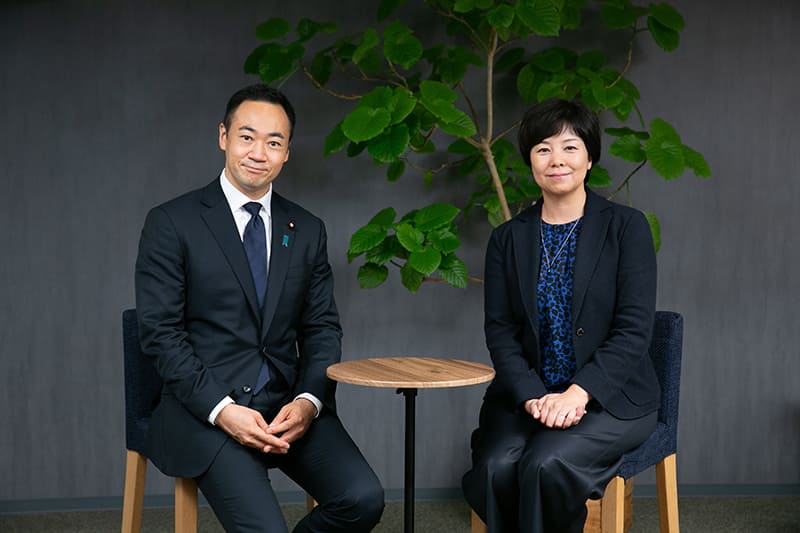
Suzuki said a key issue for the Japanese economy is to find ways to change its durables-driven industrial structure, in view of the current rapid diversification of consumer needs. “What the government should do is to paint a vision to be realized in 10 years or 15 years, for example, and work out rules for encouraging (industries) to transition to it,” Suzuki said. “It should work to help the appropriate innovations to emerge by showing the direction to encourage changes, creating an appropriate market and creating appropriate investment flows.”
“In preparing the recommendations, we aimed to cause changes in awareness about that,” he added.
Suzuki believes a key to Japan’s growth is to find ways to channel human resources and funds to areas that have growth potential. “This is the case for the world of investment, but we have entered an age in which people choose businesses, instead of businesses choosing people,” Suzuki said, “and in that sense, too, companies must disclose information.” He expressed hopes for changes at Japanese companies in terms of employment, work styles and salary systems, not just the way they disclose information.
Accelerating efforts on rules
Lastly, Suzuki predicted that efforts led by Europe to work out international rules may suddenly accelerate, as the next summits of the Group of Seven leading industrial nations and the Group of 20 leading rich and developing nations will take place in Europe and the 2021 United Nations Climate Change Conference will begin in Britain at the end of October, in addition to the fact that the effort to create global standards for ESG information disclosure is led by the London-headquartered International Financial Reporting Standards Foundation, which establishes international accounting standards.
“This is going to be a crucial year” that will decide whether Japan can have its views reflected, he said. “In order for Japan to remain one of the leaders among Asian nations, it is essential for it to represent the voices of island countries in Asia and the Pacific Ocean at international conferences, and that’s the role it is expected to play,” Suzuki said. “I hope to keep that in mind in fulfilling our responsibilities in the work to create (ESG-related) rules.”
